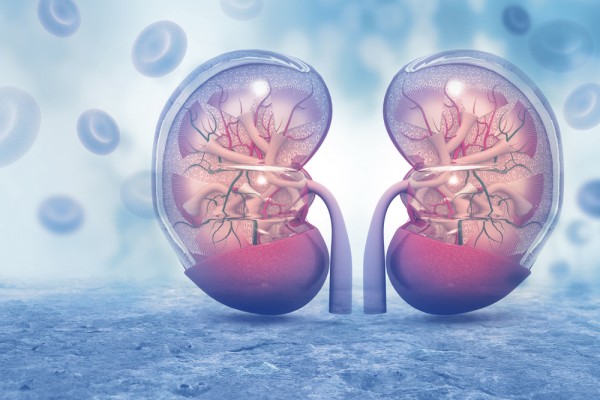March: National Kidney Month
By Susan Varbedian Lucken, R.N., B.S.N.
March is National Kidney month according to Healthline. 30 million people or 15% of U.S. adults are estimated to have chronic kidney disease according to the CDC. 48% of those with severely reduced kidney function but not on dialysis are unaware of having chronic kidney disease. Most ( 96% ) people with kidney damage or mildly reduced kidney function are not aware of having chronic kidney disease. Kidney disease can affect your body’s ability to clean your blood, filter extra water out of your blood and help control your blood pressure.
You are born with 2 kidneys located on either side of your spine just above your waist. When your kidneys become damaged, waste products and fluid can build up in your body. That can cause swelling of your ankles, vomiting, weakness, poor sleep and shortness of breath. Without treatment, the damage can get worse, and your kidneys may eventually stop working. This is very serious and can be life-threatening.
This is what healthy kidneys do
- Keep a balance of water and minerals ( such as sodium, potassium and phosphorus )in your blood
- Remove waste from your blood after digestion, muscle activity and exposure to chemicals or medications
- Make renin, which your body uses to help mange your blood pressure
- Make a chemical called erythropoietin , which signals your body to make red blood cells
- Make an active form of vitamin D, needed for bone health and other things
If your kidneys suddenly stop working, doctors call this acute kidney injury or acute renal failure. The main causes are:
- Not enough blood flow to the kidneys
- Direct damage to the kidneys themselves
- Urine backed up in the kidneys
- Those things can happen when you:
- Have a traumatic injury with blood loss, such as in a car accident
- Are dehydrated and your muscle tissue breaks down sending too much protein into your blood stream
- Go into shock because you have a severe infection called sepsis
- Have an enlarged prostate that blocks urine flow
- Take certain drugs or are around certain toxins
- Have complications during a pregnancy such as preeclampsia and eclampsia
- Have an autoimmune disease that can also cause an acute kidney injury
Chronic kidney disease
When your kidneys don’t work well for months to years, doctors call it chronic kidney disease. Even though you may not have symptoms in the early stages, that’s when it’s simpler to treat.
Diabetes ( type 1 and 2 ) and high blood pressure are the most common culprits.
Symptoms of chronic kidney disease include:
- Nausea
- Vomiting
- Loss of appetite
- Fatigue and weakness
- Sleep problems
- Changes in amount of urination
- Decreased mental sharpness
- Muscle twitches and cramps
- Swelling of feet and ankles
- Persistent itching
- Chest pain, if fluid builds up around the lining of the heart
- Shortness of breath, if fluid builds up in the lungs
- High blood pressure that’s difficult to control
Risk factors for chronic kidney disease
- Diabetes
- High blood pressure
- Cardiovascular disease
- Smoking
- Obesity
- Being African-American, Native American or Asian-American
- Family history of kidney disease
- Abnormal kidney structure
- Older age
Prevention
- Follow instructions on over-the-counter medications ( such as aspirin, tylenol and motrin etc. )
- Maintain a healthy weight
- Don’t smoke
- Manage medical conditions with your doctor
Diagnosis
- Thorough physical exam and neurological exam
- Blood tests
- Urine tests
- Imaging tests ( i.e. ultrasound )
- Kidney biopsy
- Depending on the underlying cause, some types of kidney disease can be treated. Often, though, chronic kidney disease has no cure.
Treatment
- High blood pressure medications
- Medications to lower cholesterol levels
- Medications to treat anemia
- Medications to relieve swelling
- Medications to protect your bones ( i.e. calcium and vitamin D )
- Lower protein diet to minimize waste products in your blood
Treatment for End-Stage kidney disease
- Dialysis
- Kidney transplant
Unlike many diseases, kidney disease often has no symptoms until it’s very advanced. That’s why it’s important for people to not only become aware of their risk, but also learn about the steps they can take to keep their kidneys healthier longer. Make an appointment with your doctor if you have any signs or symptoms of kidney disease. If you have a medical condition that increases your risk of kidney disease, your doctor will want to monitor your blood pressure and kidney function with urine and blood tests.
Sources: www.mayoclinic.org, www.cdc.gov/kidneydisease, www.webmd.com
